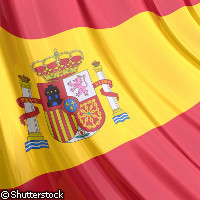Presidency launches voting for the Science and Innovation Citizens Agenda
The Spanish Presidency of the European Union has launched an innovative online vote to give Europeans the chance to choose which challenges in science and innovation should be resolved by the year 2030. An electronic scoreboard located in the hall of the European Council building in Brussels will collect votes in real time from 12 May until the conclusion of the voting process on 26 May. European science and innovation ministers, gathering in Brussels for the EU Competitiveness Council, will then receive the final results. At the recent launch ceremony for the vote, the Spanish Minister of Science and Innovation, Cristina Garmendia, highlighted the value of scientific culture and social participation in science as necessary conditions for ensuring democratic quality within a society. As such, she stated that 'citizen involvement can influence highly-significant political decisions', stressing the need for citizens to be able to clearly communicate their preferences, concerns and proposals to the scientific community. The challenges being voted on are known collectively as the Science and Innovation Citizens Agenda. The agenda presents 14 areas of science and innovation proposed by public figures whose contributions to science and innovation 'have changed our lives'. The voting areas are: - innovate in healthy eating habits, - store electricity more efficiently, - overcome language barriers using technology, - technologies to help the elderly, - innovate in public social services, - personalised medical treatment thanks to genetics, - more comfortable, accessible and ecological cities, - reduce the consumption of raw materials, - agriculture that is less damaging to the environment, - understand how the brain works to improve our lives, - use ICTs and the Internet for the benefit of education, - artificial organs to replace damaged organs, - unify all physics theories, - robots that make our lives easier. The project also introduces fourteen European citizens whose creations or research have become a part of everyday life, often without us knowing the extent to which they have changed our lives. They include well-known personalities such as architect Norman Foster, biologist Jane Goodall and physicist Juan Ignacio Cirac; and other lesser-known names, but whose contributions have certainly changed the way we live. These include Franck Biancheri (creator of the Erasmus scholarships), Karlheinz Brandenburg (inventor of MP3) and Matti Makkonen (the main contributor to SMS). Eligible voters will also enter a prize draw for four scientific experiences consisting of trips for two people to see large science facilities in European cities.
Countries
Spain



